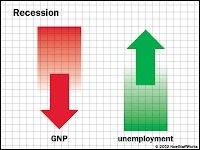Petrol
prices are just going up north. The petroleum industry is not able to manage
itself and is constantly in red. Government is not permitting these companies
to raise its prices to minimise its losses.
The industry- hit by high crude prices, depreciating rupee thereby
escalating import payments, inflation, political constraints, policy paralysis
and taxes has not helped the cause.
Taxes
form major part of the oil prices. Taxes levied are Excise duty, octroi, state
vat and so on. Excise duty of Rs 14.78 is levied on a litre of petrol. 20% vat
is charged on oil. Also entry tax varies from state to state. Eg: UP levies 5%
entry tax. They are forced to pay huge amount of tax without availing the
benefit of credit on taxes. So these amounts are passed on the common man. We
end up paying nearly Rs22-25 on taxes. One third of prices paid by us are taxes
on petroleum.
Taxes
which we pay adds to the government exchequer. But again the tax amounts are
not effectively utilised by the government. (Refer earlier article- why should
I pay taxes) Some of the amount collected as taxes is returned to the PSUs in
form of subsidies. With ever increasing prices, PSUs just cannot get out of the
red zone.
What
is the solution we have in front of us? If taxes are removed for a short term
period on oil, it would turnaround the company. Even if the global crude prices
increase, it will not impact the ultimate common man. At the same time, it will
help the PSUs recover their losses and show profits, if possible. Again, PSUs
will use the funds in a better way compared to the government. It will also
enable the investors take informed decision as some of these companies are
listed on stock exchange. Government
will not be required to infuse capital and bail them out from being a sick
company.
So
by following rotational policy on taxes on petroleum, it will be a win-win
situation for everyone, be it the common man, company, government, banks and so
on. But the government will not let the taxes go as it is one of the major
sources of income for them from this industry. But they need to analyse the
present situation and take such a move. There will be demand from people to lower
the prices. But considering all aspects, it will solve huge number of issues
for the government such as inflation, growth, subsidy and so on.





.jpg)




